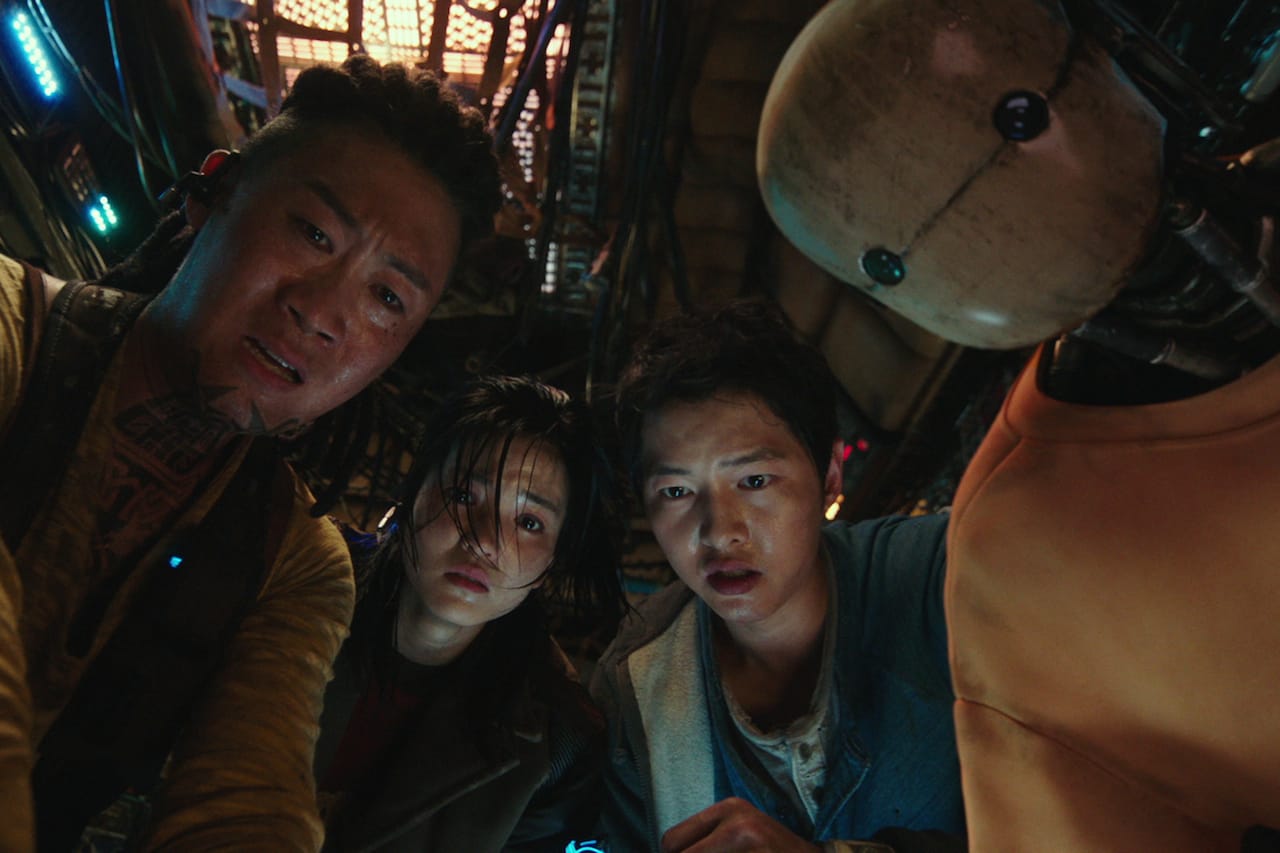"Space Sweepers" and the Incompatibility of Blockbusters and Environmentalism
Being flaunted as South Korea’s first space-opera, "Space Sweepers" (or Victory, in the English translation of the Korean title), is less operatic than myopic, being limited by the seeming incompatibility of the blockbuster format with pro-environmentalism stories.

In 2092, human industrialization has pushed Earth to its limits, prompting the megacorporation UTS, led by Sullivan (Richard Armitage, summoning the spirit of Elon Musk), to create Eden, a utopian space colony for the uber-rich. Thanks to the construction of Eden, space is cluttered with enough junk to justify an entire profession of janitorial pirates called “space sweepers” to, well, clean space.
The crew of the aptly named Victory— intimidating Captain Jang (Kim Tae-ri, in her first major role since 2016’s The Handmaiden), angsty Tae-ho (Song Joong-ki), eccentric former drug-lord Tiger Park (Jin Seon-kyu), and mandatory cutesy robot Bubs (voiced Yoo Hae-jin)—stumble upon a humanoid robot known to be implanted with a weapon of mass destruction. The catch? The WMD is an adorable little girl with a sneezing problem named Kot-nim (Park Ye-Rin). The Victory decides to make a profit off her and attempts to sell her to Black Fox, presumably a terrorist organization, which incites a series of troubles.
Continue reading on Boston Hassle.com.